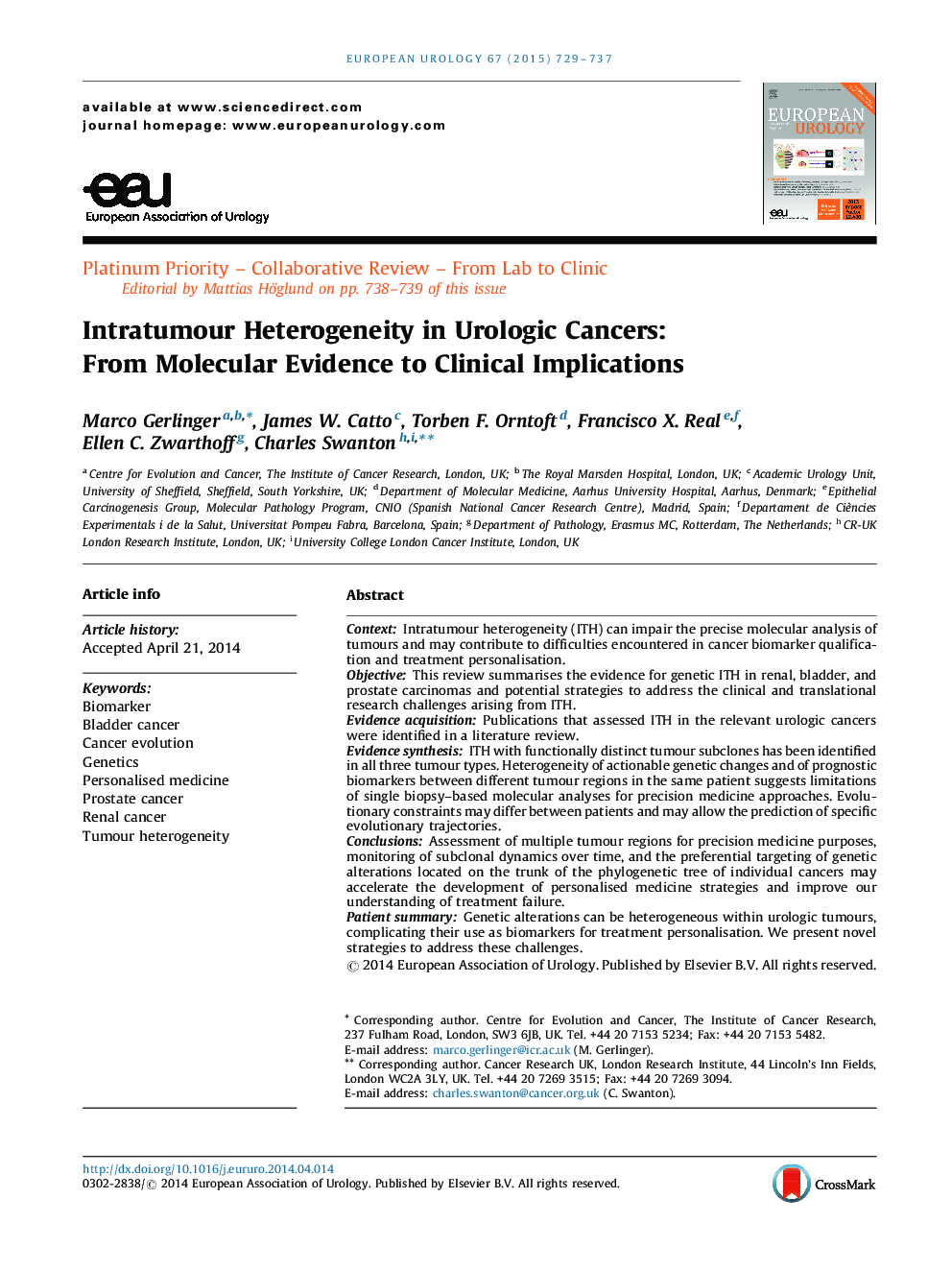| Article ID | Journal | Published Year | Pages | File Type |
|---|---|---|---|---|
| 6175289 | European Urology | 2015 | 9 Pages |
ContextIntratumour heterogeneity (ITH) can impair the precise molecular analysis of tumours and may contribute to difficulties encountered in cancer biomarker qualification and treatment personalisation.ObjectiveThis review summarises the evidence for genetic ITH in renal, bladder, and prostate carcinomas and potential strategies to address the clinical and translational research challenges arising from ITH.Evidence acquisitionPublications that assessed ITH in the relevant urologic cancers were identified in a literature review.Evidence synthesisITH with functionally distinct tumour subclones has been identified in all three tumour types. Heterogeneity of actionable genetic changes and of prognostic biomarkers between different tumour regions in the same patient suggests limitations of single biopsy-based molecular analyses for precision medicine approaches. Evolutionary constraints may differ between patients and may allow the prediction of specific evolutionary trajectories.ConclusionsAssessment of multiple tumour regions for precision medicine purposes, monitoring of subclonal dynamics over time, and the preferential targeting of genetic alterations located on the trunk of the phylogenetic tree of individual cancers may accelerate the development of personalised medicine strategies and improve our understanding of treatment failure.Patient summaryGenetic alterations can be heterogeneous within urologic tumours, complicating their use as biomarkers for treatment personalisation. We present novel strategies to address these challenges.
